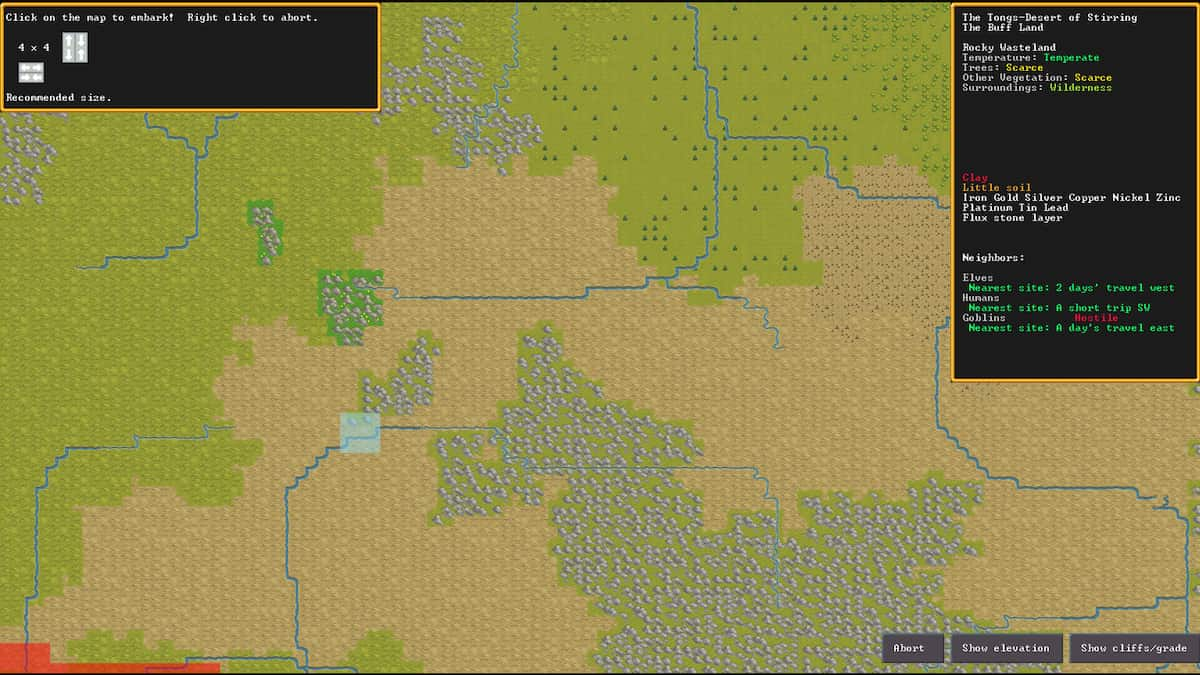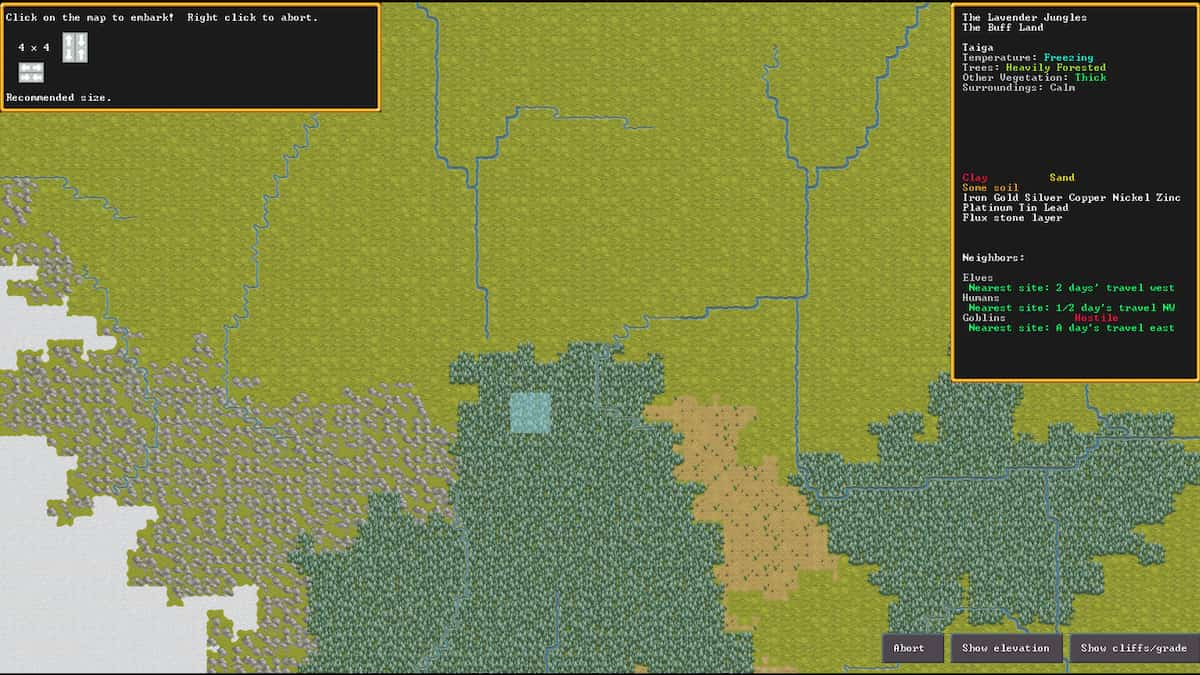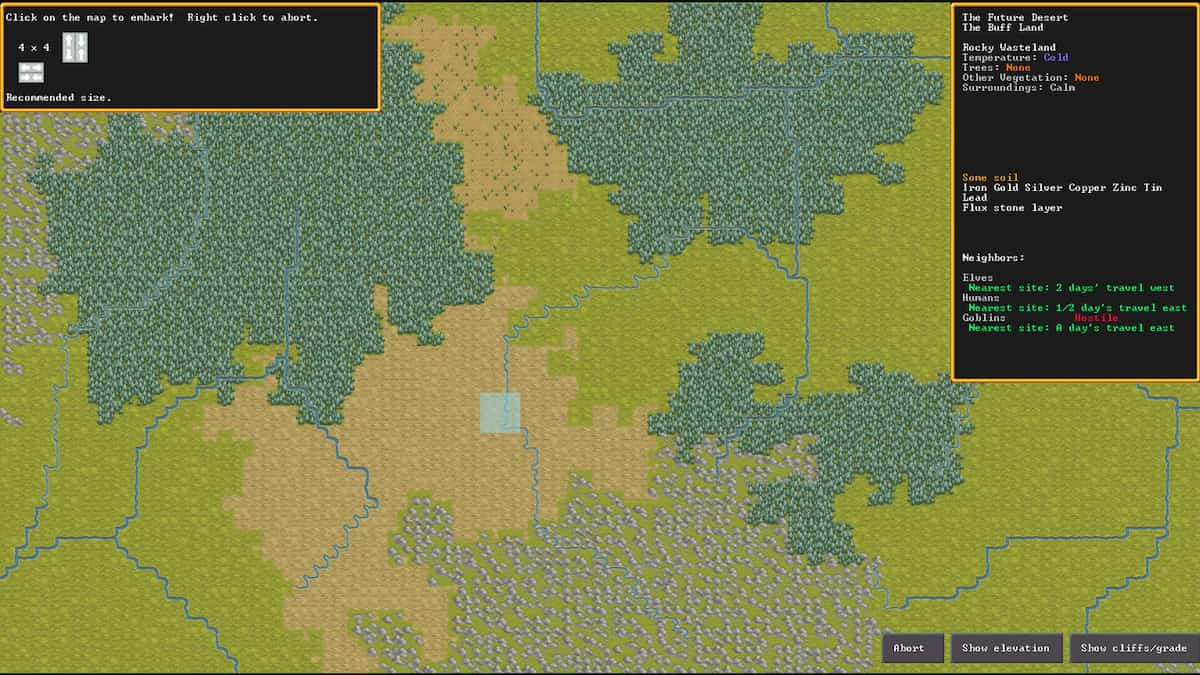Before you start your Dwarf Fortress game, you’ll have to decide on your embark location. Each world will quite literally have thousands of options. But with all this choice, where exactly are the best places to embark and settle in Dwarf Fortress?
General good embark options
- You need Flux Stone in an embark on making steel. If you don't have Flux (Calcite, Chalk, Dolomite, Limestone, or Marble), you'll have to import it to make steel.
- Avoid aquifers, both light and heavy. Aquifers will make your life very difficult in the early game and often mean you cannot dig through the valuable stone layers deeper underground.
- Embarking too close to a hostile civilization, whether it's goblins or elves will mean you’re more likely to get raided earlier in the game.
- Extremely cold and extremely hot locations present their own sets of problems, including snow, weather, and water sources drying up or freezing. Make sure you’re prepared if you embark here.
- Embarking on an island or beach can seem appealing, but the seas bring their own issues, including isolation. You’ll also cut yourself off from any civilizations, not on the island.
Best Dwarf Fortress embarks
Mountain
Mountains are the traditional home of the Dwarves, and basing your fortress in the mountains or on a hillside is the best embark. A lot of the traditional strategies in Dwarf Fortress are based around this, and mountains give you the quickest and most plentiful access to resources like gems, ores, and stone.
Valley
Valleys are naturally defensible, make great fortress locations, and are aesthetically pretty cool too. If you can find a river running through a mountainous valley, you might have found one of the perfect embark locations.
Riverside

Being next to a river, brook, or stream means you’ll likely never starve because you can always fish for your meals. Fishing will give you an extra avenue of resources, while being next to a water source will also provide a defensive landmark for you to build around.
Forest

Forests are bountiful embark locations with plenty of wood, food, and other resources. You might not naturally have the hills and mountains you’d be accustomed to, but being able to easily access more wood than you’ll ever need should quickly solve those issues.
Flat plain

While a flat plain might not seem like the best place to embark, if you can find a wide flat area, particularly one not on an aquifer, you’ll be able to settle easily. Building a strong surface fort and digging directly down will give you a great position to observe the surrounding areas.
For more Dwarf Fortress guides, check out All Differences between Dwarf Fortress classic and Dwarf Fortress Steam on Pro Game Guides.
